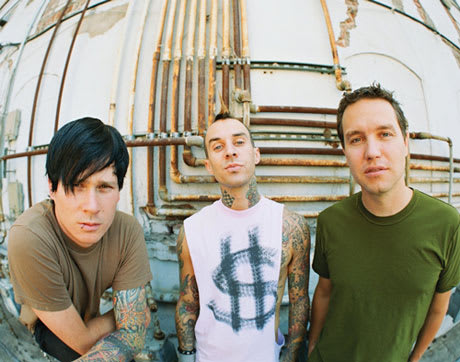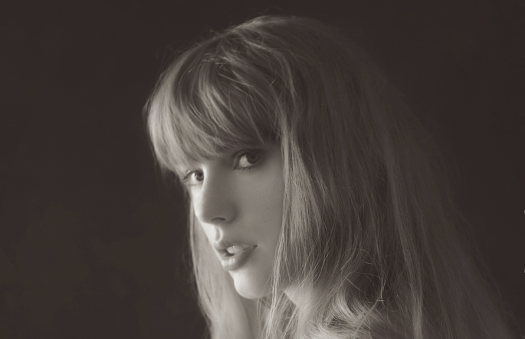From time of mohawks, leather and safety pins to bleached hair, backpacks and baggy pants, punk rock has had a lasting and mostly under-appreciated impact on musical history. The debate on whether or not it's "dead" rages on, but the punk community, as fractured as it is, refuses to give in. Staying true to the spirit of "do it yourself" punkers have generally rejected the mainstream music industry in favour of a world-wide underground network of bands, zines and labels.

Garage
Although the roots of punk lie in the '50s with rock and rollers like Gene Vincent, Little Richard, Elvis Presley and Chuck Berry, the raw garage music of the '60s has had a direct and lasting impact on the punk that followed. Garage is a mainly North American style comprised of teenagers influenced by UK imports like the Rolling Stones, the Who, Them and the Kinks. They played chaotic, fuzzed-out tunes possessed by boundless energy and unhindered by lack of musical ability. Reissues of obscure material like the Teenage Shutdown series on Crypt and the vast catalogues of Norton and Bomp have kept the spirit of garage alive.
Essential listening: Various Nuggets: Original Artyfacts from the First Psychadelic Era, 1965-1968 (Rhino); Sonics Boom (Norton); Kingsmen The Best of (Rhino); 13th Floor Elevators Psychedelic Sounds of (Collectables, 1966); Trashmen Surfin Bird (Soma, 1964)

Oi!/Streetpunk
Though the fortunes of Oi have waxed and waned, it's currently enjoying a resurgence through labels like San Francisco's TKO and bands like Boston's Dropkick Murphys. Characterised by working class lyrics, sing-along choruses and fuelled by many pints of beer, Oi is the music of choice for skinheads. Oi has always had the misfortune of being associated with Nazis, a not altogether incorrect characterisation. The fight between the racist and non-racist skinheads has been going since the '70s with both camps claiming to be the rightful owner of the style.
Essential listening: Sham 69 That's Life (Polydor, 1978); Angelic Upstarts 2,000,000 Voices (Zonophone, 1981) Swingin' Utters A Juvenile Product of the Working Class (Fat Wreck Chords, 1996); Dropkick Murphys Do Or Die (Hellcat/Epitaph, 1998); 4 Skins The Good the Bad & the 4 Skins (Secret, 1982)

Eighties Hardcore
Unlike '90s hardcore (heavy metal by clean cut fellas in ball caps instead of leather clad, hair-farming devil worshipers), '80s hardcore is simply "louder, faster, shorter." Originally an American phenomenon at the dawn of the decade in places like California, DC, Boston and New York, '80s hardcore spawned the mosh pit, slam dancing, stage diving and the career of Henry Rollins. This is the period that is always glossed over in the myth that punk died with Sid Vicious in 1979 and was resurrected as Nirvana in 1991.
Essential listening: Circle Jerks Group Sex (Frontier, 1982); DOA Bloodied But Unbowed (Alternative Tentacles, 1983); Dead Kennedys In God We Trust Inc. (Alternative Tentacles) Minor Threat Out of Step (Dischord, 1983) Black Flag Damaged (SST, 1982) Negative Approach Total Recall (Touch & Go, 1992)

Mall Punk
This gained popularity in the mid-'90s after punk "broke" with the help of Nirvana and later Green Day. Capitalised on by labels like Epitaph and Fat Wreck Chords, it's fast, melodic, polished and not too hard on the ears, with songs that can all sound alike. Readily available at your local shopping centres and on big ticket shows with well-stocked and pricey merchandise tables.
Essential listening: Bad Religion Recipe For Hate (Atlantic, 1993); Lagwagon Let's Talk About Feelings (Fat Wreck Chords, 1998); Blink 182 Dude Ranch (Cargo, 1997); NOFX Punk In Drublic (Epitaph, 1994)

Garage
Although the roots of punk lie in the '50s with rock and rollers like Gene Vincent, Little Richard, Elvis Presley and Chuck Berry, the raw garage music of the '60s has had a direct and lasting impact on the punk that followed. Garage is a mainly North American style comprised of teenagers influenced by UK imports like the Rolling Stones, the Who, Them and the Kinks. They played chaotic, fuzzed-out tunes possessed by boundless energy and unhindered by lack of musical ability. Reissues of obscure material like the Teenage Shutdown series on Crypt and the vast catalogues of Norton and Bomp have kept the spirit of garage alive.
Essential listening: Various Nuggets: Original Artyfacts from the First Psychadelic Era, 1965-1968 (Rhino); Sonics Boom (Norton); Kingsmen The Best of (Rhino); 13th Floor Elevators Psychedelic Sounds of (Collectables, 1966); Trashmen Surfin Bird (Soma, 1964)

Oi!/Streetpunk
Though the fortunes of Oi have waxed and waned, it's currently enjoying a resurgence through labels like San Francisco's TKO and bands like Boston's Dropkick Murphys. Characterised by working class lyrics, sing-along choruses and fuelled by many pints of beer, Oi is the music of choice for skinheads. Oi has always had the misfortune of being associated with Nazis, a not altogether incorrect characterisation. The fight between the racist and non-racist skinheads has been going since the '70s with both camps claiming to be the rightful owner of the style.
Essential listening: Sham 69 That's Life (Polydor, 1978); Angelic Upstarts 2,000,000 Voices (Zonophone, 1981) Swingin' Utters A Juvenile Product of the Working Class (Fat Wreck Chords, 1996); Dropkick Murphys Do Or Die (Hellcat/Epitaph, 1998); 4 Skins The Good the Bad & the 4 Skins (Secret, 1982)

Eighties Hardcore
Unlike '90s hardcore (heavy metal by clean cut fellas in ball caps instead of leather clad, hair-farming devil worshipers), '80s hardcore is simply "louder, faster, shorter." Originally an American phenomenon at the dawn of the decade in places like California, DC, Boston and New York, '80s hardcore spawned the mosh pit, slam dancing, stage diving and the career of Henry Rollins. This is the period that is always glossed over in the myth that punk died with Sid Vicious in 1979 and was resurrected as Nirvana in 1991.
Essential listening: Circle Jerks Group Sex (Frontier, 1982); DOA Bloodied But Unbowed (Alternative Tentacles, 1983); Dead Kennedys In God We Trust Inc. (Alternative Tentacles) Minor Threat Out of Step (Dischord, 1983) Black Flag Damaged (SST, 1982) Negative Approach Total Recall (Touch & Go, 1992)

Mall Punk
This gained popularity in the mid-'90s after punk "broke" with the help of Nirvana and later Green Day. Capitalised on by labels like Epitaph and Fat Wreck Chords, it's fast, melodic, polished and not too hard on the ears, with songs that can all sound alike. Readily available at your local shopping centres and on big ticket shows with well-stocked and pricey merchandise tables.
Essential listening: Bad Religion Recipe For Hate (Atlantic, 1993); Lagwagon Let's Talk About Feelings (Fat Wreck Chords, 1998); Blink 182 Dude Ranch (Cargo, 1997); NOFX Punk In Drublic (Epitaph, 1994)




